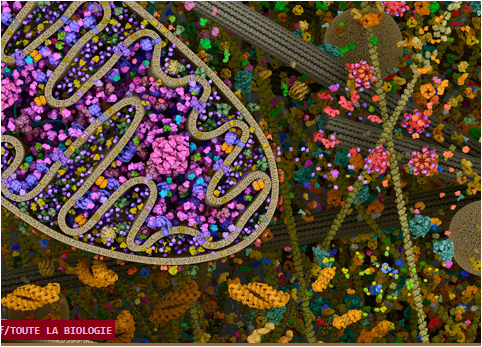the mitochondria come from the mother; not the father; and we finally know why
Biologists are beginning to understand the mechanisms that direct this maternal inheritance and lead paternal mitochondria to self-destruct.
All animals (with rare exceptions) inherit from their mothers a little something more: the mitochondria. These cellular organelles often compared to power plants provide the fuel necessary for the biological processes that take place in the heart of the cell. At the time of fertilization, only the mitochondria from the mother's oocyte are preserved and passed on to the offspring. Those of the father, contained in the spermatozoa, are destroyed shortly after the meeting of the gametes. The reasons and mechanisms that control this elimination are not yet well known but a new study, published in the journal Science, illuminates somewhat this phenomenon which seems vital to ensure the survival of the egg and thus the maintenance of an offspring .
This research was conducted by a team led by Dr. Ding Xue of the University of Colorado, and focuses on C. Elegans, the biologists' favorite worm. The researchers examined his paternal mitochondria by electron microscopy and CT scan during reproduction. They found that the mitochondria of male gametes began to degrade themselves in the early stages of development, before being finally surrounded by vesicles and literally digested by the growing egg. This self-destruction is under the influence of a gene, cps-6. Other experiments have shown that gamete-fertilized eggs in which cps-6 was deactivated retained paternal mitochondria much longer during their development. And these eggs were also less viable. This shows that transmission of paternal mitochondria represents an evolutionary disadvantage and explains why they are destroyed. A previous study conducted at the CNRS had already revealed some of the mechanisms leading to the destruction of paternal mitochondria. The researchers explained that the highly active metabolism of mitochondria could lead to frequent mutations in mitochondrial DNA, a genetic material distinct from that of the nucleus DNA. "The oocyte would eliminate paternal mitochondria to prevent these mutations from perpetuating and affecting the offspring" they supposed.
"source: science and the future"
thanks for reading
